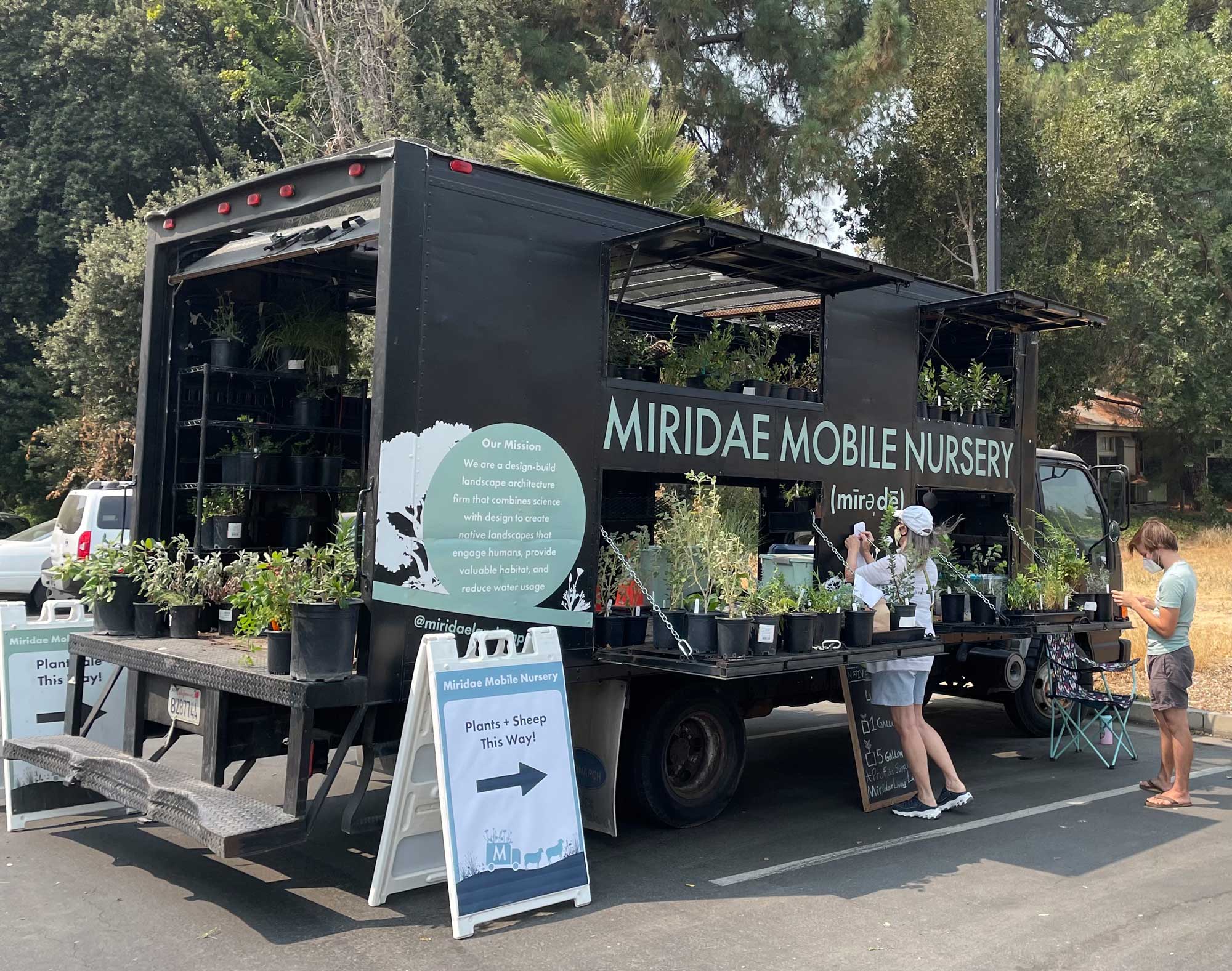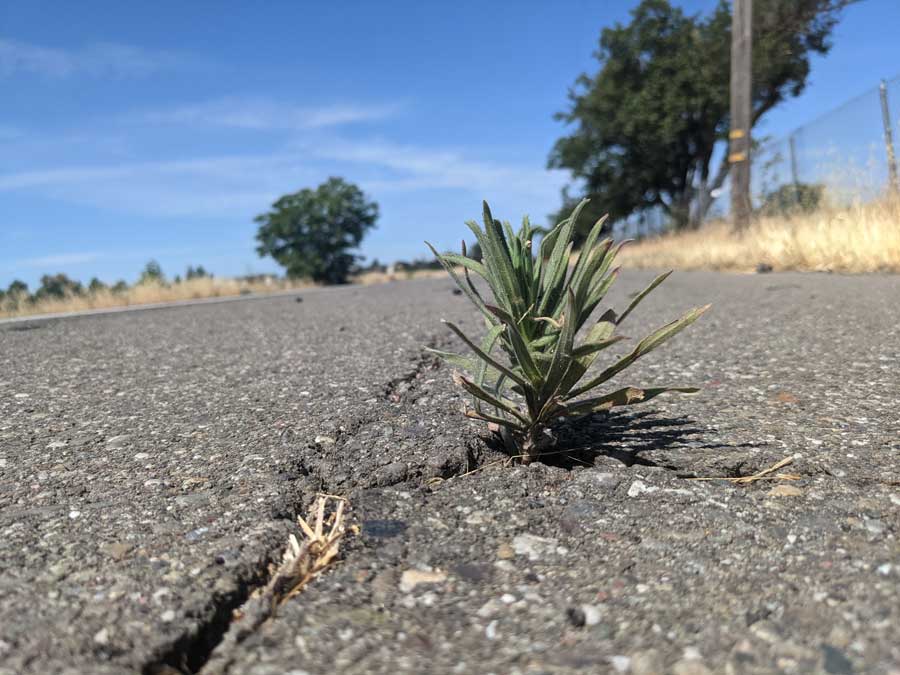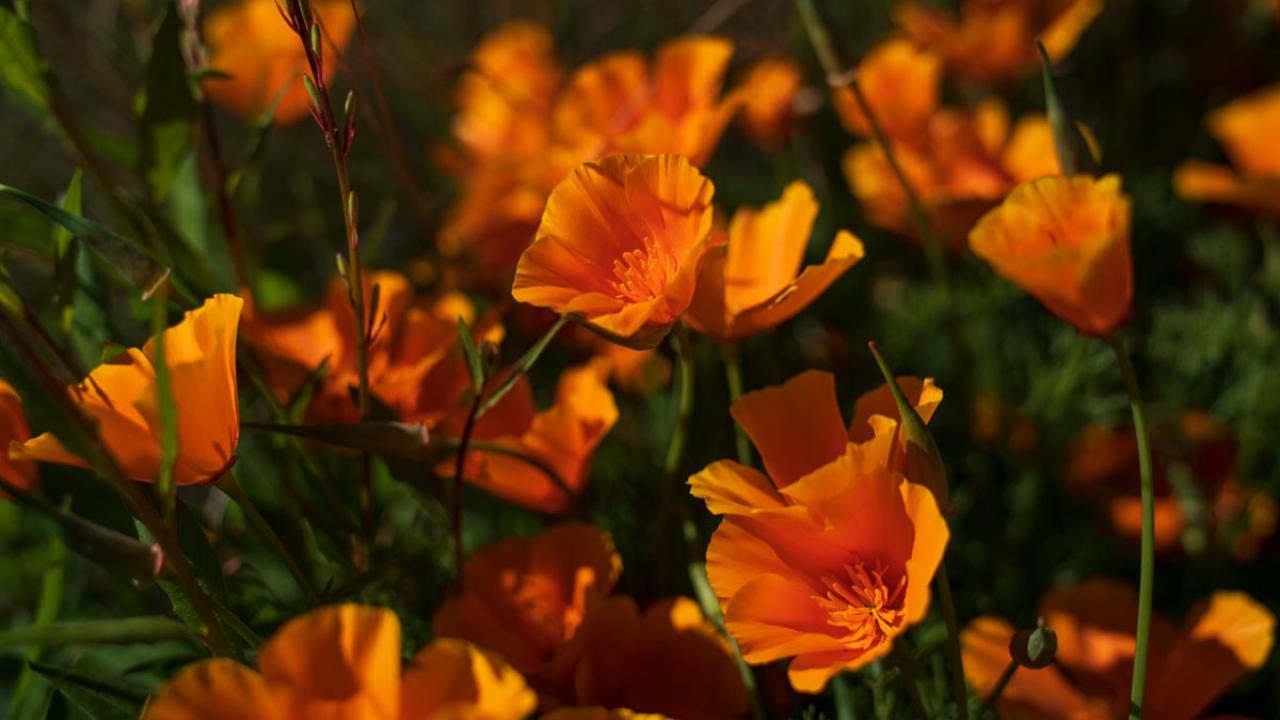Quick Summary
- People can pick up seeds at various locations
There might soon be more native California poppies, lupines and sunflowers popping up along streets and sidewalks in the region. The University of California, Davis, Department of Human Ecology has teamed up with local nonprofit Miridae Living Labs, which uses native plants and insects as tools for education and research, to launch the “Seed Pile Project,” a community initiative that aims to find out which native plant seeds are best at dispersing in cities, roadsides, alleyways and other places they may naturally fall.
The project is the brainchild of Haven Kiers, assistant professor in landscape architecture and environmental design, and Billy Krimmel, who earned his doctoral degree in ecology from UC Davis and is co-founder of Miridae Living Labs. They invite volunteers from Davis, West Sacramento and Sacramento to drop small piles of native seed mixes in random spaces where they live or work and monitor which species succeed and under what conditions.
“There are some species we try to seed in gardens, and they fail. But then you see them on the sides of the highway just flourishing,” Krimmel said. “What’s up with that? That’s the basic question we’re trying to answer.”
Studying questions like that can help inform the landscaping industry’s decisions about what native plants to use and where to put them for the most ecological benefit. Krimmel says sharing the collected data can also be useful for local public works departments and state agencies such as the California Department of Transportation, or Caltrans.
“The future of a lot of habitat restoration in urban areas is roads,” Krimmel said. “Caltrans can’t go install all this irrigation and plants, there’s no budget for that. But, if you had a couple pounds of seeds per mile, suddenly it becomes a completely different value proposition. But we must know which ones can survive in that context and don’t need to be trimmed, pruned, fertilized and watered. Intentionally, it’s just a pile of seed.”
The seed packets that will be handed out to participants and plopped around town include yarrow, California poppy, tarweed, turkey mullein, lupine, sunflower and clarkia plants. Krimmel and Kiers are excited that the project will also raise awareness about the importance of California native plants, which tend to require less water and no pesticides, and promote biodiversity.

“Any native species of plant has at least one or two plant bugs that only survive on that plant,” Krimmel said. “One of the exciting things about this project is that people will learn how to identify some of the common native wild plants in the area that they may otherwise think is a weed. A lot of stuff that people walk by and dismiss, they’ll now have a new appreciation for.”
Krimmel and Kiers conducted a small test run of the project last year and dropped seeds around 50-plus spots, including on campus. According to their observations, they say one of the most successful locations for flowers and plant growth was found in cracks in asphalt away from manicured gardens and lawns.
“We did a few around campus and what was really interesting was that within the first month we got all the seedlings — they were there, and it was exciting,” Kiers explained. “And then I came back a second time and all of it had been removed, which is part of the culture of maintenance. So, it’s cool that the places where these plants survived and thrived were the ones where it was completely hands-off.”

Krimmel and Kiers say they’ve already gotten some sign-ups and hope to have close to 2,000 people join the project. Those interested can sign up online and are asked to share photos and notes about what they observe. Kiers says the project is designed to be simple so that people of all ages can participate.
“The idea is that anyone can do it — adults, kids, teachers, college students,” Kiers said. “And we want people to be like ‘heck yea, I want to do this because it’s really fun.’”
People can arrange to pick up seed packets at a couple of local spots including Explorit Science Center in Davis and the Sierra 2 Center in Sacramento. Seeds can also be picked up at the Miridae Mobile Nursery, a curbside native plant pop-up shop. Krimmel, along with Miridae’s design team, came up with the idea to convert a box truck into the native plant nursery on wheels, offering about 30 native plant species. Krimmel says events with the truck are held about two to three days a week at local businesses, and community members can schedule neighborhood events free of charge.
While Krimmel and Kiers are hopeful they will gather valuable information from the community during the Seed Pile Project, for them it’s all about promoting education and having fun.
“That’s the dream of this collaborative group,” Krimmel said. “We’re trying to link ecology to landscape and to education.”
Media Resources
Media Contacts:
- A. Haven Kiers, Human Ecology, ahkiers@ucdavis.edu
- Billy Krimmel, Miridae Living Labs, billy@miridae.com
- Tiffany Dobbyn, College of Agricultural and Environmental Sciences, tadobbyn@ucdavis.edu
Additional Resources:
- High-resolution photos here.
- Seed Pile Project
- Miridae
